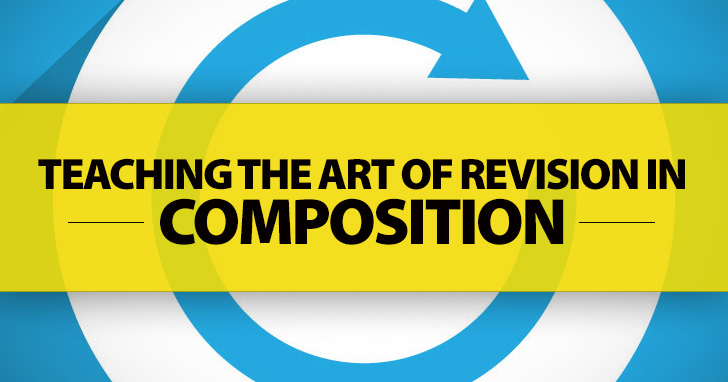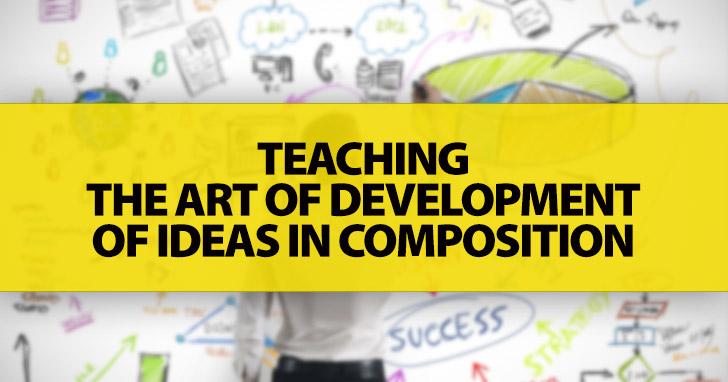Teaching the Art of Revision in Composition


I usually answer “Until you’re finished.” This may seem facile, but it really is the correct answer: say what you have to say, and then stop. The problem is students often feel they have nothing to say.” Feel” is the operative word: they actually do, invariably, have something to say on almost any topic, but they just don’t know it yet.
A good essay to assign to model developing a simple idea is William F. Buckley’s “Why Don’t We Complain?” Although I may disagree with his starting premising that Americans have trouble complaining, the essay demonstrates developing an idea. Buckley takes this basic premise, the difficulty in speaking up against intolerable conditions, starting with a simple anecdote of an overheated and overcrowded railway car (overheated on a freezing day by a malfunctioning furnace) that no one took the initiative to complain to the train staff about. He then develops the notion of unwillingness to complain from cultural, societal, historical, and future predictive perspectives. Throughout the essay, Buckley analyzes our culture’s background of self-reliant immigrants and pioneers and how we went from that to a compliant people who won’t even raise their voices about an overheated room to its logical conclusion of weak, oppressed individuals completely reliant on a centralized and technical authority.
William F. Buckley is, of course, a skilled writer. But students can be taught to use the same strategies Buckley employs to develop their own work, adding enough of their own material that the concern with length will be the essay getting too long--not just from padded repetition but with relevant details and analysis.

This is a reliable method. Buckley starts with his own experience of the railway car and adds several other personal examples, such as not being served in a timely manner in restaurants and stores. The use of personal examples makes a potentially abstract, removed topic concrete and relevant--most readers will have had similar experiences.
There must be some reason the event stayed with you. Analyze it: what do you think about the event, why was it important, why did it stick with you? What struck Buckley about the train event, he relates, is that a carful of presumably free-willed adults were so passive that they sat silently as the car grew hotter and hotter and then seemed to resent Buckley when he finally said something to the conductor. This in turn spoke to Buckley about an apparent important cultural change.
Throughout the essay, Buckley offers different examples of the failure to complain when complaining is due: in the train coach, in a movie theater, once in a ski shop when he did choose to speak up and then found it was a mistake, and so forth. Adding relevant personal examples on a topic inevitably develops the writing, not only in length, but in making the topic personal and real in a way that it wouldn’t be if Buckley had just discussed “complaining” in general.
A good essay, of course, goes beyond just telling stories and also offers some analysis. Why don’t people speak up under intolerable conditions? What are the causes and effects of failing complain? Throughout the essay, Buckley offers causes of the increasing passivity of the American public, such as increased dependence on technology as well as a more removed central authority impossible to complain to. He also addresses effects--the passivity of the individual, the silencing of our collective voice, and by implication the danger to the democracy itself.
Without this analyze of the importance of the event beyond your universe, the anecdote of the train cart would stay just that, Buckley’s unfortunate experience in a train with its insensitive staff and passive passengers. But he takes the experience and analysis many steps further: not complaining because we’ve gotten used to others doing things for us, expecting others to complain, fear of public censure for complaining, feeling helpless in an age of technology and centralized power. Buckley then relates this passivity to different areas of life, from the personal to the political. Students can do the same by analyzing what their personal anecdote means to others, what it says about society in general, what it will mean for the future of the society as well as cross-cultural and historical analysis. For example, Buckley compares how Americans would have reacted to an overheated train car in the past and what the silencing of complaining might do to our future; students can do the same in analyzing their experience as well as how people in other cultures would react in similar situations or how they might have in the past or will in the future.
In looking at the topic from a variety of angles and perspectives, a theme or thesis emerges in the Buckley work that the American public has abandoned its hearty immigrant and pioneer roots and transformed into an increasingly dependent and passive people and that this threatens the core of the society. As students analyze their experience from a variety of perspectives, they are likely to see related issues emerge that will combine to create a theme that can be highlighted throughout the work.
A visual organizer can be used to prompt students of ways to develop their essays: different balloons, for example, branching from the core inciting example and prompting students to consider causes, effects, past and future related issues, and so forth. Or students can be encouraged to fill in columns related to the topic: rows for causes, effects, future implications, and so forth, to develop ideas on the topic. They should also discuss these graphic organizers with peers to further develop ideas.
Does it have to be? Absolutely not. By teaching students to analyze an issue and/or experience from a variety of perspectives, they will soon be “complaining” about having too much, rather than too little, to say on topic.